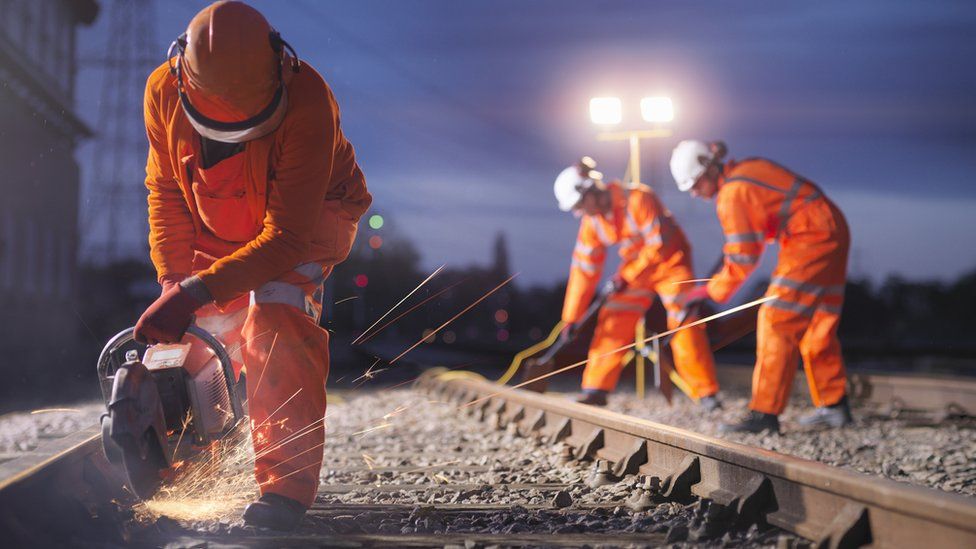ARTICLE AD BOX
By Katy Austin & Michael Race
Business reporters, BBC News
 Image source, Getty Images
Image source, Getty Images
Network Rail has started a legal consultation with unions on maintenance reforms it says are needed to modernise the rail industry, one of the issues at the centre of the current strikes.
Around 1,900 fewer jobs would be needed under the proposed reforms.
The company said the plans will also save money that is "necessary for the future of our railway".
But the RMT union, which has staged strikes over pay and reform proposals, criticised the move.
The reforms have been a key part of the ongoing dispute with the RMT, and this step represents an attempt to push through the changes whether or not the union agrees.
But negotiations can continue through the consultation process.
Changes to how Network Rail maintenance teams work would see multi-functional teams sent to fix faults on on tracks instead of multiple specialist teams.
A "raft of labour and life-saving technology" would also be rolled out.
Network Rail's chief executive Andrew Haines said he hadn't given up on finding a negotiated way forward, but added "we can't continue to circle the same ground day after day, week after week and not move forward".
"It is vital that we progress our modernisation plans to help put our railway on a sustainable financial footing for the future," he said.
"The way people live and work has changed since the pandemic. On the railway, that means significantly fewer commuters and significantly less income."
Network Rail said around 1,900 fewer jobs would be needed under the reforms - cutting the maintenance workforce from about 10,000 to about 8,000.
However, it insists most roles could be shed through voluntary redundancy, retraining and redeployment, instead of compulsory redundancies.
"These reforms are too important, especially given we started these conversations 18 months ago," said Mr Haines.
Thousands of rail workers from Network Rail and train companies have walked out in recent weeks due to the row over reforms as well as wages.
On Wednesday, a strike meant about 20% of train journeys went ahead.
RMT members will go on strike again, with the same impact on services on 18 and 20 August.
On Saturday, about 5,500 train drivers at seven rail companies who are members of the Aslef union will strike, which coincides with the Commonwealth Games and is the first day of the English Football League season.
'No deal good enough'
Network Rail said its most-recent offer of an 8% pay rise over two years, with "heavily discounted travel, a cash bonus and a guarantee of no compulsory redundancies" had met many of RMT's demands.
"The alternative is to ask either taxpayers or passengers to fund a pay increase, and that is neither fair nor realistic," the company said.
It is understood that Network Rail was on two occasions close to reaching a deal, but union bosses then had a "shift in tone".
Mick Lynch, general secretary of RMT, hit back at Network Rail's latest move, saying an offer made was "entirely conditional on mass redundancies and changes to conditions and working practices".
"Rather than deceiving the staff about what they are actually proposing, the company now needs to get back round the table with RMT and work to resolve the issues in the dispute including their proposals for change and the union's demands for job security and a decent pay rise," he said.
Transport Secretary Grant Shapps said: "While we still encourage RMT to join talks and find a solution to this dispute that is fair for all, it's clear now that no deal was ever going to be good enough for the RMT, and they have left Network Rail no choice but to go ahead with these essential modernisations with or without their support."

 2 years ago
32
2 years ago
32








 English (US) ·
English (US) ·